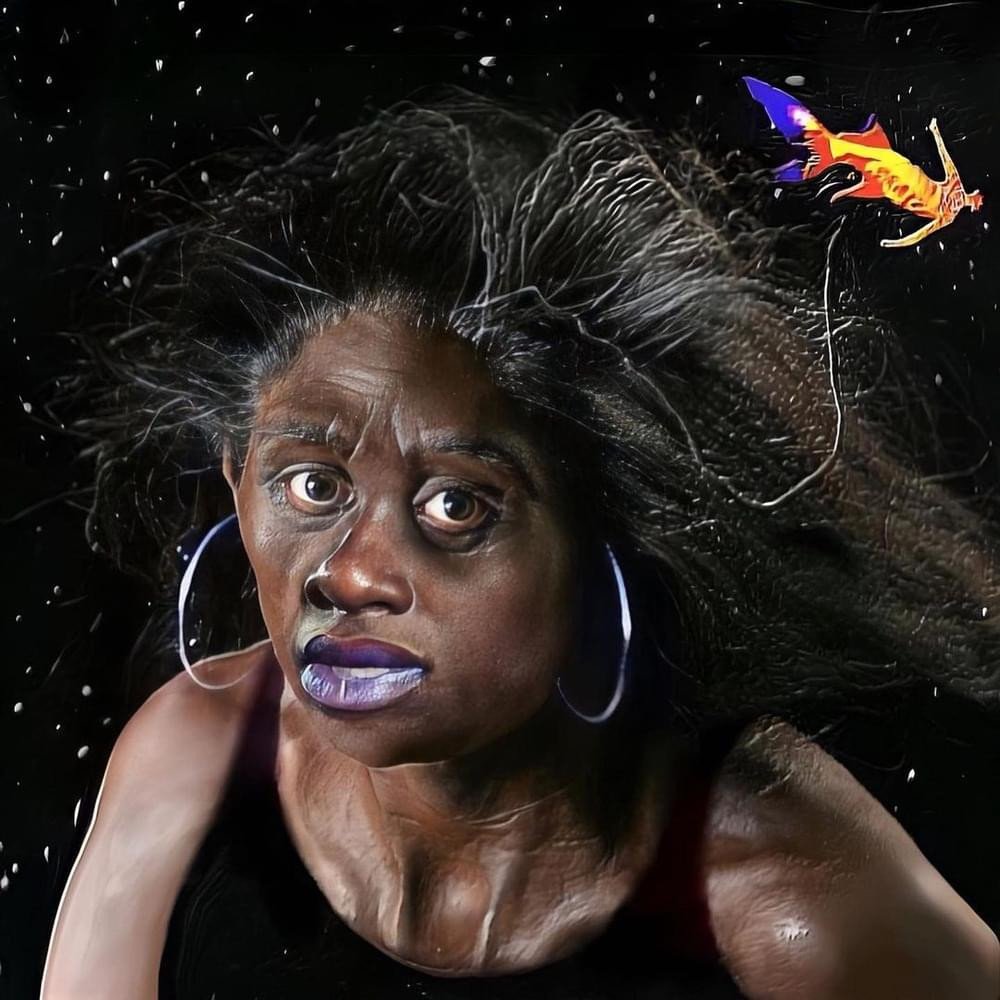REVIEW: Noname, “Sundial”
Album cover for Sundial, image courtesy the artist.
REVIEW
Noname, Sundial
Self-released, 2023
By Efua Osei
As the world spins into oblivion, Noname’s Sundial cuts through the noise. Her rhymes narrate the conflicting experience of celebrating small pockets of joy and community amidst the dystopian realities of our world as Noname sees it. Noname’s music has always spoken to Black pride, the struggle for liberation, and a nostalgic love letter to her Chicago roots. Her tongue and wit has only gotten sharper. In the five years post Room 25, Noname as an artist, an educator, and a writer has evolved tenfold. As she’s moved away from the musical spotlight and pursued Noname Book Club and community organizing, her art has only gotten more informed and thus more critical. Since its founding in 2019, Noname Book Club has created spaces, even within various prisons, for radical reading and discussion to occur. Because of various views, Noname has since been criticized for holding abhorrently wealthy and political Black figures to the same standard as their white counterparts. In a world where we want to root for everyone Black, Noname speaks up to ask for accountability for those who exacerbate the same social and political structures that have historically disadvantaged Black and brown people. In a world where we wish to believe we can dismantle the master’s house with his own tools, Noname reinforces the idea that we as Black people must create our own tools for liberation. And that those tools aren’t going to be lobbying or peaceful non-violent action. Her opinions have caused people to critique and insult her, and even challenge her as a rapper. This is the album that challenged them back.
At its root, Hip Hop and Rap is about cadence and storytelling. From the production, to the raps, to the art, and to the performance; Hip Hop has always been the playground for greats like Noname to thrive. And I say playground because there is something about Noname’s music that has always felt playfully effortless. Like most my intro to Noname was Telefone; tales of childhood nostalgia and grief scored by a bright and sunny underlying sound palette. I always appreciate her ability to create songs that take you to another place, allowing you to dream and imagine. While she’s always been a socially and politically aware, sharp lyricist, her delivery and her production has always been so light and airy in juxtaposition. Even the pretty sounding analogies she uses still describes a reality of death and grief, such as Casket Pretty. However I love that Sundial sounds as punching as it reads. Her rhymes, while beautifully crafted, are much more literal this time around leaving very little to the imagination.
Noname embraces a more mature sound with glimmers of the pretty vocals and harmonies I always expect. On a song like boomboom, producer Gaetan Judd brings the afro-influence sonically with added trumpets from Ife Ogunjobi to create a different sound I haven’t heard Noname rap over. Ayoni’s “Clock-a-boom-boom, Clock-a-tick” beautifully blends into Noname’s witty first verse, “Ticky-ticky-boom-boom … kissing a poom-poom … tasty like fufu.” Boomboom creates a sound landscape that ties in unique influences from various parts of the African diaspora, and tells a story of a sweet Black love. On the other hand, songs like potentially the interlude showcase a more punching Noname delivery as her voice and the accompanying drums are crescendoing the entirety of the song. By the end, I’m screaming the chorus right along with her, “People say they love you but they really love potential. Not the person that;’s in front of them, the person you’ll grow into.”
This attention grabbing track many have been talking about is namesake. She name drops Jay-Z, Rihanna, Beyoncé, and Kendrick rapping about how celebrity culture is used to glamorize propaganda and to distract us from critical conversations. She even calls herself out, admitting she’s made a “sell out” choice to perform at Coachella after a personal decision to stop performing for crowds of white consumers. In the same vein, many critique Noname’s integrity for inviting Jay Eletronica as a feature onto the album. If not for his insensitive remarks and problematic verse, his proximity to the likes of Jay-Z and other big music moguls elicited cries of hypocrisy.. However, she’s never been a person who shies away from addressing it. Noname’s point to implicate herself makes the album more of a point of discussion, rather than the basis to critique someone on their high-horse. The album's ending track, oblivion, serves as the final conclusion to this collection of thoughts, critiques, memories, and prayers. While Noname raps, “When the world blow up, that's it. Spinning into oblivion” Common ends his verse saying, “Into oblivion, we gon' dream.” You can accept the reality that oblivion eviscerates, and we’re slowly heading into the end of it all. You can also dream of a future after the end of it all, even if you may not live to see it. There isn’t one way to feel or understand what’s to come for us individually and us as a society, but oblivion reminds us we’re always still spinning.
As a long time Noname fan, I’m always excited for new music as I find new things to read and new musicians to follow, especially from Chicago. I respect how much Noname is about what she says, what she reads, and the community organizing she does. Her art directly questions peoples’ awareness of things most want to ignore; poverty, misogynoir, homophobia, transphobia, and overall complacency with capitalist and colonial structures. And musically, it’s made her lyrical knife exceptionally sharp. Radical honesty, the love of Black and African culture, and the hometown glory hallmark this era of Noname.
BRIDGE MUSIC EDITOR EFUA OSEI’S NONAME FRESH CUTS DISCOVERY PLAYLIST:
ON SOUNDCLOUD
Like what you’re reading? Consider donating a few dollars to our writer’s fund and help us keep publishing every Wednesday.



